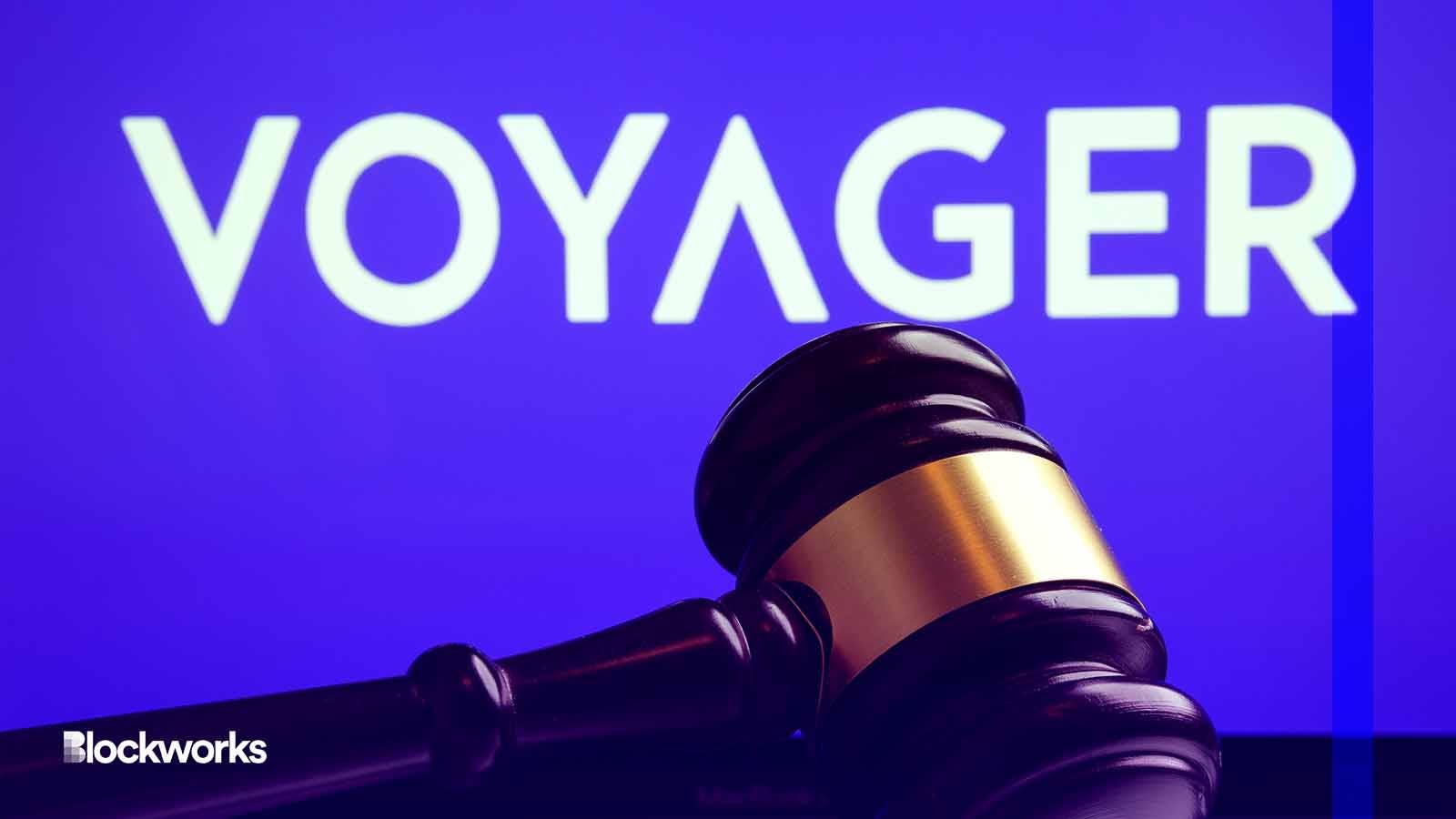CFTC and FTC sue former CEO of bankrupt crypto lender Voyager
As part of an FTC motion for settlement, Voyager faces a penalty of $1.65 billion

mundissima/Shutterstock modified by Blockworks
A pair of US regulators filed legal actions against the former CEO of Voyager, a crypto lending firm that declared bankruptcy last year.
The Federal Trade Commission and the Commodity Futures Trading Commission both submitted complaints in the US District Court for the Southern District of New York, filings show. While the FTC named both Voyager and Ehrlich as defendants, the CFTC action named Ehrlich as the sole defendant.
The CFTC is pursuing “restitution, disgorgement, civil monetary penalties, permanent trading and registration bans, and a permanent injunction against further violations of the Commodity Exchange Act” against former CEO Stephen Ehrlich.
As part of the allegations, the CFTC claims that Ehrlich defrauded customers by “misrepresenting the safety and financial health of the Voyager digital asset platform.”
In an emailed statement to Blockworks, Ehrlich said the FTC and CFTC “filed claims leave me both outraged and deeply dismayed. The talented management team at Voyager created and maintained our platform in full compliance with the existing regulatory structure. Our team consistently communicated and worked closely with our regulators.”
“I am profoundly upset by the losses suffered by Voyager’s customers and creditors due to the conduct of others in the crypto industry,” Ehrlich continued. “I am currently reviewing the government’s claims, but it is clear I am being used as a scapegoat for the bad actions of others. I look forward to vindication in court.”
Meanwhile, the FTC complaint alleges that Voyager and Ehrlich made deceptive claims about possessing insurance from the Federal Deposit Insurance Corporation, which insures deposits in US banks up to $250,000.
Voyager marketed, on both its website and the app, that funds would be FDIC-insured, the FTC claimed. The complaint attached screenshots showing the webpage advertising FDIC insurance of up to $250,000.
The FTC claims that Ehrlich and Voyager were “well aware” that Voyager and, therefore, customer deposits were not insured.
In a separate court move, the FTC moved to settle with Voyager’s corporate entity, which is expected to pay a $1.65 billion penalty as part of a settlement. The firm neither admitted nor denied the claims, per the court filing.
The FTC complaint also named Ehrlich’s wife, Francine Ehrlich, as a relief defendant.
“Relief Defendant Francine Ehrlich has received funds that can traced directly to Defendants’ deceptive acts or practices alleged below, and she has no legitimate claim to those funds,” the FDIC alleged.
Voyager was one of a series of companies that declared bankruptcy in 2022 in the wake of the collapse of crypto hedge fund Three Arrows Capital. The firm filed for bankruptcy protection on July 6 of that year after it froze deposits and withdrawals.
Voyager finalized a plan to liquidate its assets as part of a customer repayment plan earlier this year.
Bloomberg reported on Oct. 6 that CFTC officials were weighing charges against Ehrlich.
“These allegations appear to be one of those times where the referees are making new rules and calling foul after the game has ended,” Ehrlich told the outlet at the time. “I look forward to being vindicated in court.”
Update Oct. 12, 2023 at 5:35 pm ET: Added statement from Stephen Ehrlich.
Get the news in your inbox. Explore Blockworks newsletters:
- The Breakdown: Decoding crypto and the markets. Daily.
- 0xResearch: Alpha in your inbox. Think like an analyst.






